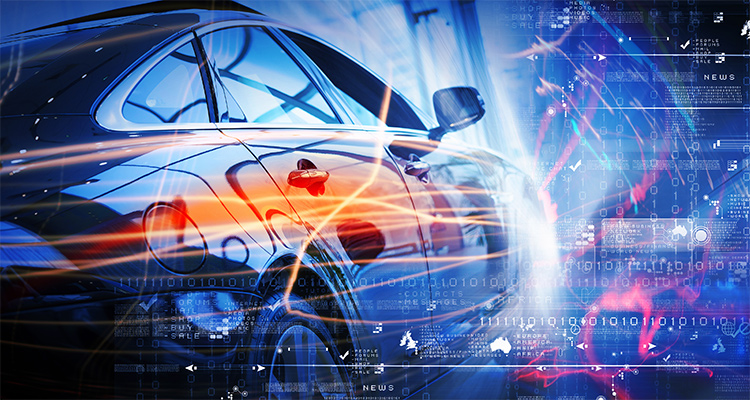
by Ben Volkow, CEO and Founder, Otonomo
Sponsored Article
Car data is opening up new markets for driver services. Information like engine status, driving patterns and media preferences are shedding light on driver behavior and vehicle health. By implementing these insights into their products, service providers can develop and provide valuable experiences to drivers. In a short time, these services will transform the way we drive, and nice to have options will become necessities. Soon, drivers will maintain their loyalty to the OEMs that serve them with concierge options, safety, parking, infotainment and smart city advantages.
Such car data is available worldwide and can be utilized by global and local service providers to create apps for local drivers. In Germany, for example, data attributes from millions of German connected cars and OEMs are already being sent to Otonomo’s car data service platform where they are reshaped so that they can be used for development. This German car data is anonymized to ensure compliance to GDPR and other privacy regulations. When dealing with driver-specific data from OEMs like Daimler, which is one of the OEMs Otonomo is partnering with, driver consent is attained through a neutral server platform and a Consent Management Hub to ensure driver privacy and security.
These processes are already in place, so many driver services are just waiting to be developed by tech companies and municipalities. Let’s take a look at a few ideas of what can already be done with existing car data in Germany.
Mapping Apps
Anonymized and aggregated data from many vehicles is used by mapping apps to create High Definition (HD) and Smart Device (SD) maps for drivers. The more detailed the map, the better the app can direct drivers to the best route, reduce traffic congestion and promote advertisements. By incorporating aggregated car locations, road sign data, vehicle speeds, engine mode, data from advanced ADAS systems and more, mapping apps can paint a detailed and accurate picture of the roads for drivers to use.
Smart City Innovation
Mapping apps might be the present, but smart cities are the future, and the future thrives on data. Smart cities use data to make cities safer and more efficient for drivers and pedestrians. Car data is perfect for this, as it provides an overview of city traffic and enables managing it. By using car data, cities can change traffic lights in real time, redirect traffic in case of congestion, spread out police cars and even identify piles of trash that need to be cleared to keep the city cleaner. Data about traffic, road blocks, construction sites, accidents and children drop-off areas is already being implemented around the world for real-time traffic management and mobility improvement. In Nevada for example, a company called WayCare is using car data to prevent car accidents by predicting them before they happen. This model can be recreated in Germany.
Fuel and Battery Status
In addition to aggregated data, driver specific data enables providing advanced tailored services to drivers, pending upon obtaining data usage approval. The usage of this data complies with security and privacy regulations, and drivers can opt out anytime.
One of the most interesting services is determining the fuel status of a vehicle, or car battery status in the case of an EV (Electric Vehicle). If a driver consents to the usage of this data, she or he can be provided with services like on-demand fueling or charging, or directions to a nearby gas or charging station, where they can get a discounted coffee and sandwich while waiting for their tank or battery to fill up.
Insurance Models
Another service car data enables nowadays and can be implemented in Germany is UBI (Usage Based Insurance); this is based on Odometer data. Insurance companies can incorporate vehicle data into their models, creating PAYD (Pay As You Drive) policies for drivers. Access to car data is easier for insurance than telematics-based data, as telematics devices are prone to wear and tear and require expensive maintenance.
Vehicle Status
Finally, no one likes coming back to their parking space to discover a dent in their door, or worse, a missing car. Analyzing vehicle data attributes like door status, window status, light position and door lock status provides an understanding if, when and how a vehicle was hit or stolen. This data is valuable for car owners and insurance companies to reduce car damage.
Additional uses of this type of data might include reducing drivers’ morning stress by sending them an alert anytime they accidentally left their car lights on the night before or having an app that checks the weather and alerts drivers if a car window is open before rainy days.
Car data innovation doesn’t have to be restricted to German borders. PTV Group for example, a German traffic and transportation software company, uses car data in Europe from Otonomo to provide mobility services, traffic modeling and transportation planning. PTV Group incorporates multiple data attributes into their datasets, and it then provides advanced traffic models that cities can already put to use.
The opportunities for developing for Germany’s drivers are endless, and the data is here. Innovative service providers that want to stay one step ahead of the market should start planning and developing today. These services will shape the future of the driving experience and push forward the German economy as a whole.
 Ben Volkow,
Ben Volkow,
CEO and Founder,
Otonomo